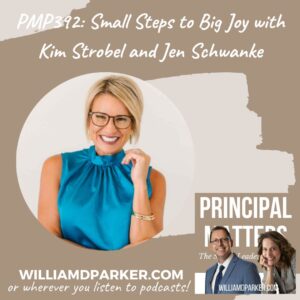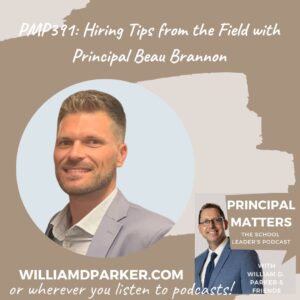Podcast: Play in new window | Download
This week, I had the privilege to interview TJ Warren, Director of Programs for Stand in the Gap Ministries.
Located in Tulsa, Oklahoma, Stand in the Gap is an organization committed to impacting the lives of orphans, widows and prisoners in partnership with generous donations from individuals, churches and businesses as well as various foundations. Specifically, he has been directly involved with assisting youth from difficult backgrounds and those who have aged out of foster care.
Listen to the entire podcast episode to hear more about TJ’s background and something surprising to know about him. Here is a short summary of our conversation:
Working with Students from Trauma
WDP: What are some important ideas for educators to keep in mind when working with youth from traumatic backgrounds or those without essential resources?
TJ Warren: First, it is important to learn to identify trauma-behavior. When you see behavior that is out-of-norm, remember there is usually a story behind that behavior. Behavior that is outside cultural norms should be a red-flag that it may be coming from trauma. We must have restorative responses, not punitive ones, if we are going to create safe environments where students can actually learn. This begins by knowing your students and understanding where they come from.
As adults, we need to work from a relational perspective, not a transactional perspective. Respect is not something we demand from students. Instead our attitudes toward children must be that they deserve to be treated with dignity and respect just as we hope they will treat us likewise. But we adults must initiate a posture of dignity and respect if we hope to see the same cultivated in children.
WDP: One of my classroom practices was to tell students every day, “I’m glad you’re here.” At the secondary level, eventually students would ask me why I said that phrase every day. When they did, I would remind them what an honor it was that they chose to step into class each day. Years later, I remember a former student visiting me to tell me how that phrase, “I’m glad you’re here,” was one that brought him a lot of encouragement while he was living in a very insecure home environment.
TJ Warren: Yes, the power of repetitive routines creates a biological response in the attitudes and expectations of students. It’s paramount. In essence, we are re-teaching students to feel safe – especially the ones who come from really hard places. Routine reduces the tendency of hyper-vigilance. When students are focused on survival, not learning, those repetitive routines provide them with a way to anticipate a safe learning environment. They begin re-orienting to those routines and expectations before they even come into your classroom.
WDP: Can you help us understand the perspective of a young adult who is transitioning out of foster care?
TJ Warren: Think about the routines that give you peace of mind in your life and home. Now apply that to young adults who are unraveling because they are losing those places of safety. First, expect some unraveling. Second, if you have access to organizations like ours, connect students with transition organizations at least six months before they age out. Organizations like ours will connect students with a team of mentors to help them safely transition.
WDP: The success of students happen when they are able to transition from school into those next areas of growth or support in life. Wraparound services like yours help students make that transition.
TJ Warren: Yes, through LifeLaunch, we solely focus on surrounding young adults with supportive mentors and connect them with other services that help with that transition. In Oklahoma, we operate LifeLaunch throughout the state. Anyone can access our website for current trauma-informed research and mentor training.
Now It’s Your Turn
You can listen to even more great takeaways by listening to the podcast episode! Even as you lead during difficult conditions, what ways can you help connect students in need with mentors or community organizations that may provide them support? You can find out more about resources for assisting young adults transitioning from foster care at https://www.standinthegap.org. Or reach out to TJ Warren by email at tj@sitgm.org.



